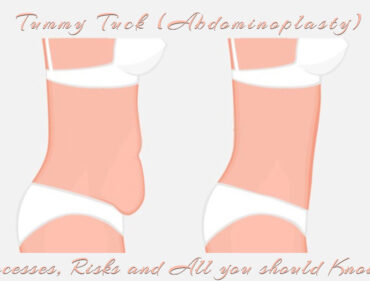Cushing Syndrome – Everything to know and its Symptoms
Cushing syndrome disease, more common in women than in men and most often seen in people ages 25-40, is caused by an increase in the hormone cortisol, which helps maintain blood sugar levels, protects the body from stress, and suppresses inflammation in major parts of the body.
Cortisol is produced by the adrenal glands, which are small glands located at the top of each kidney. The production of cortisol is triggered by the release of a hormone called adrenocorticotropic hormone (ACTH) from the pituitary gland, located at the base of the brain.
Cortisol also known as the stress hormone, performs some important functions in the body such as: metabolizing the body’s glucose level, controlling the blood pressure. It is also the hormone responsible for the natural flight or fight response. During the fight or flight response, your body is trying to prioritize, so anything it doesn’t need for immediate survival is not given priority.
This means that digestion, reproductive and growth hormone production and tissue repair are all temporarily halted. Instead, your body is using all its energy on the most crucial priorities and functions. In essence, getting exposed to this hormone or our body producing it in excess can lead to Cushing Syndrome.
Table of Contents
ToggleCAUSES OF CUSHING SYNDROME
Cushing syndrome, sometimes called hypercortisolism is mostly caused by the use of oral steroids (oral corticosteroid medications) in high doses over an extended period of time. These medications, such as prednisone, have the same effect on the body as does cortisol produced by your own body.
Steroid medicines, such as prednisone, used to treat many diseases, including lupus, asthma, and rheumatoid arthritis. They are also used after an organ transplant.
Oral corticosteroids may also be necessary to treat inflammatory diseases and to prevent your body from rejecting a transplanted organ. Because the doses required to treat these conditions are often higher than the amount of cortisol your body normally needs each day, side effects from excess cortisol can occur.
Also, as explained earlier, the body produces excess cortisol on its own and all this increases the chance of a person getting Cushing syndrome.
SIGNS AND SYMPTOMS
The most common sign of Cushing syndrome in women includes:
➔ Excessive weight gain and fatty tissue deposits around the midsection and upper back, in the face (moon face), and between the shoulders (buffalo hump)
➔ Pink or purple stretch marks on the skin of the abdomen, thighs, breasts and arms
➔ Thinning, fragile skin that bruises easily
➔ Slow healing of cuts
➔ Acne
➔ Thicker or more visible body and facial hair are known as Hirsutism. This most often occurs on the: face and neck, chest, abdomen and thighs.
➔ Irregular or absent menstrual period
Symptoms in men:
Men with Cushing’s syndrome may have:
-erectile dysfunction
-a loss of sexual interest
-decreased fertility
Symptoms in children:
Children can have Cushing’s syndrome too, although they develop it less frequently than adults. Children with Cushing’s syndrome may also have:
-obesity
-slower rate of growth
-high blood pressure (hypertension)
Who can be affected by Cushing’s syndrome?
Anybody can be affected by Cushing syndrome. However, adults, mostly between the age of 25 to 50, are the people most commonly affected by Cushing’s syndrome. Also, those who take cortisol medication are at high risk. 70% of people with Cushing’s syndrome are women and 30% are men.
What changes can you make to help with Cushing’s syndrome?
Change your diet to a healthy diet
– Choose low-calorie foods that are high in protein and calcium. This will help prevent muscle and bone loss caused by high cortisol levels.
– Include supplements like calcium and vitamin D supplements to decrease bone loss. Also, consult your doctor to know if you need medicine to help slow bone loss.
-Limit the use of seasonings and salt in your diet. This is particularly important if you have high blood pressure.
Pay more attention to caring for yourself
Caring for yourself could mean doing certain things and avoiding other things.
– Get regular exercise. Some particular exercises can help keep your bones and muscles strong. Aerobic exercise will also help prevent weight gain. It’s advised that you talk to your doctor before you start any exercise program.
– If you have an issue with how you look, use an anti-inflammatory body wrap and waist trainers to ensure you look your best always.
– Avoid taking a fall, so remove loose rugs and other tripping hazards from your home.
– Get regular eye exams to check for glaucoma and cataracts- See your doctor regularly to get tested for other problems such as diabetes, high blood pressure, and osteoporosis.
Cushing’s syndrome can be difficult to diagnose because many things can make your cortisol level higher than normal. A doctor who specializes in hormone disorders -endocrinologist is the best person to diagnose or treat Cushing’s syndrome.
If long-term use of steroid medicine is the cause of your Cushing Syndrome, your doctor is in the best position to help you lower your dose or gradually stop taking it. Do not stop taking steroid medicine on your own as this can be extremely dangerous.
Do you have questions or contributions? Kindly share in the comment section.




